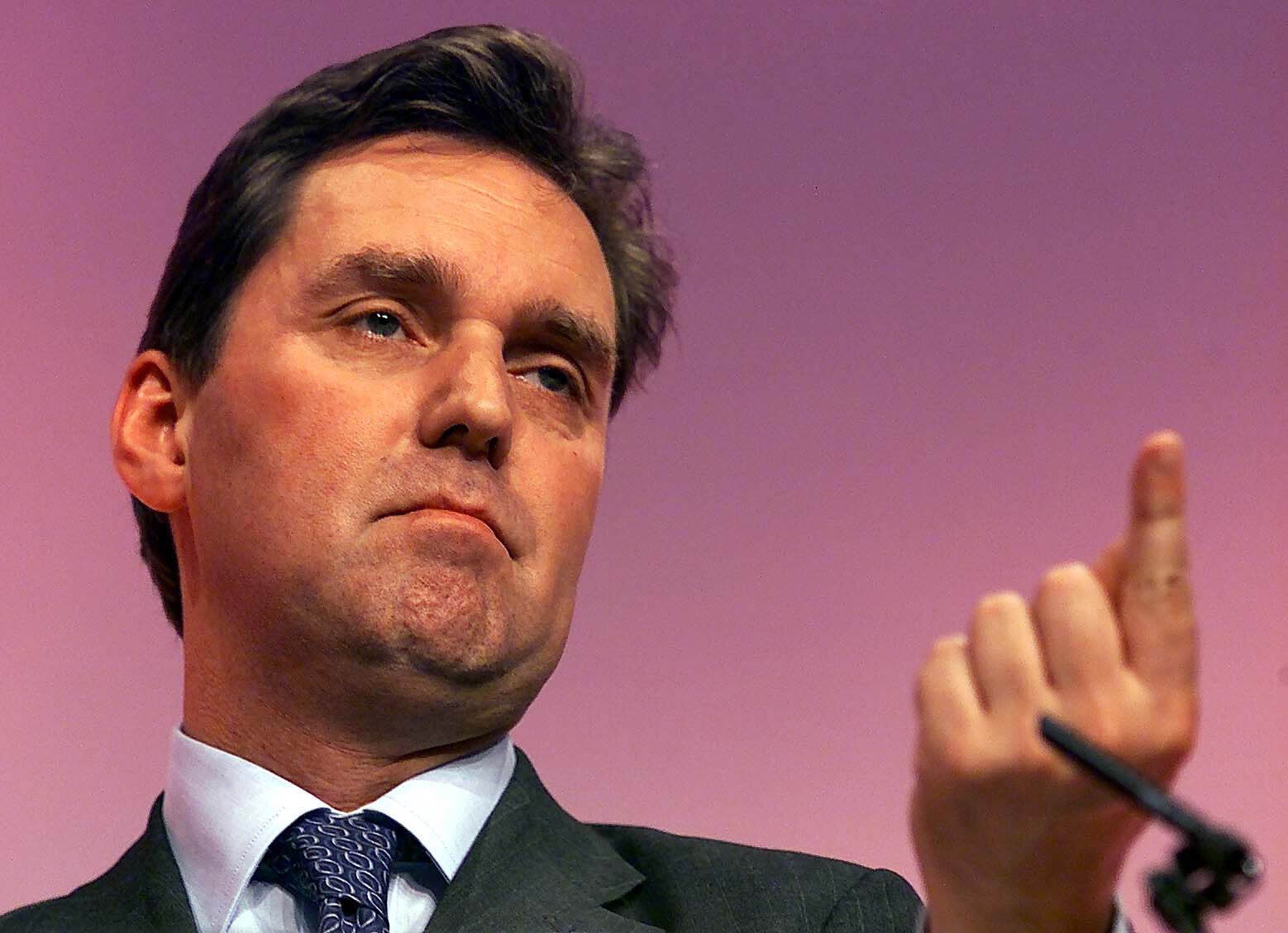UK minister said compensation for infected blood victims was mistake – inquiry
Alan Milburn, former secretary of state for health, told his Scottish counterpart Malcolm Chisholm that compensation was a ‘grave mistake’.

Your support helps us to tell the story
From reproductive rights to climate change to Big Tech, The Independent is on the ground when the story is developing. Whether it's investigating the financials of Elon Musk's pro-Trump PAC or producing our latest documentary, 'The A Word', which shines a light on the American women fighting for reproductive rights, we know how important it is to parse out the facts from the messaging.
At such a critical moment in US history, we need reporters on the ground. Your donation allows us to keep sending journalists to speak to both sides of the story.
The Independent is trusted by Americans across the entire political spectrum. And unlike many other quality news outlets, we choose not to lock Americans out of our reporting and analysis with paywalls. We believe quality journalism should be available to everyone, paid for by those who can afford it.
Your support makes all the difference.A former UK health secretary said it would be a “grave mistake” to introduce compensation payments for infected blood victims in Scotland, according to documents shown at the inquiry into the matter.
On Thursday, the Infected Blood Inquiry heard from Malcolm Chisholm, who was a health minister in what was then the Scottish Executive.
He served in the role, as part of a Labour-Liberal Democrat coalition, from 2001 until 2004, when he was appointed minister for communities.
He told the inquiry he had been involved in discussions with the Scottish health and community care committee as well as UK Government counterparts, regarding a financial compensation scheme for people who had been infected with hepatitis C after receiving blood products.
In 2000, Mr Chisholm said he did not initially believe payments should be made to a wider group of people where “no fault was involved”.
However, after receiving two petitions from the public on the issue, the health and community care committee recommended in October 2001 that those who had been infected with the hepatitis C virus, during NHS treatment, should be compensated.
Following this, Mr Chisholm said he did “not want to reject findings” outright and set up an “expert group” to examine the committee’s findings.
The expert group reiterated the committee’s findings, which Mr Chisholm then communicated to his UK counterpart, Alan Milburn.
I indicated to him in general terms I was going to offer some kind of payment to, at least, some of the people affected
“We had certainly decided we were going to have a scheme of some sort,” Mr Chisholm told Katie Scott, junior counsel to the inquiry on Thursday.
“I indicated to him in general terms I was going to offer some kind of payment to, at least, some of the people affected.”
Mr Chisholm was asked if Mr Milburn had put pressure on him to reconsider plans.
He replied: “Well, I mean, he certainly wasn’t happy and I’ve already mentioned that whatever we proposed was going to have a knock-on effect on other administrations, so no, obviously he wasn’t particularly happy about what we were proposing.”
Ms Scott asked: “Did he try to change your mind?”
Mr Chisholm answered: “I wouldn’t say he was too heavy, he knew I took a different view to him on several matters so perhaps he just thought, here’s another one.
“He did try to persuade me but he didn’t become acrimonious.
The inquiry then presented Mr Chisholm with an email from Mr Milburn’s private secretary which was a record of the telephone conversation the two ministers had held.
It revealed Mr Milburn told Mr Chisholm that bringing in compassionate payments of £10,000 initially, when people became infected with the virus, and a further £40,000 when the virus became chronic, would be a “grave mistake”.
The email goes on to say: “Once the principle we had established had been breached, then we were scuppered and on a slippery slope to payments running into the millions across the UK.”
Mr Milburn, who served as secretary of state between 1999 and 2003, then said Malcolm Chisholm will have to “tough it out”.
He instructed civil servants to “find some way of showing that the Scots don’t have the devolved power to go it alone” on the issue.
Mr Chisholm confirmed it was an accurate report of the exchange and said there were two other issues complicating the matter.
“If this was not a devolved matter, it would be difficult, if not impossible, to make any of these payments,” he said.
He also wrote to the Department for Work and Pensions to ensure payments would not be clawed back through benefits payments.
Mr Chisholm added: “Even people who thought, ‘why are you even talking to the UK Government?’ would have to acknowledge that none of this could be implemented unless we resolved the devolved power issues and the social security issue.”
The former health minister was also constrained by the department’s budget. The expert group recommended costs of about £89 million, which Mr Chisholm said would have been “very difficult to find”.
The inquiry is examining how thousands of patients in the UK were infected with HIV and hepatitis C through contaminated blood products in the 1970s and 1980s.
About 2,400 people died in what has been labelled the worst treatment disaster in the history of the NHS.